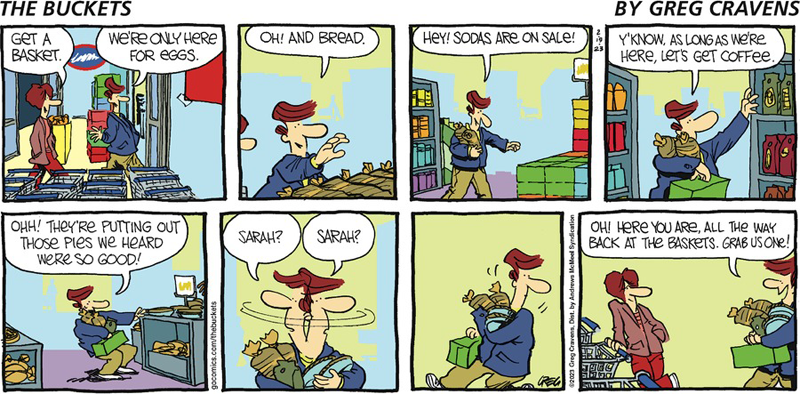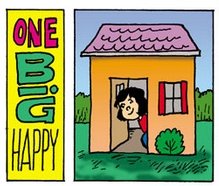CSotD: Rising to Points of Personal Privilege
Skip to commentsThis first point isn’t trivial, but it is personal. Greg Kearney notes the looming cuts at UMaine Farmington, a school I had contact with when I was editing the local paper.
The school impressed me because I’d lived in another college town and it was nice, for a change, that downtown merchants didn’t have to start Monday morning sweeping up broken glass and hosing off vomit from their sidewalks. The kids weren’t grinds, but they seemed to know why they were there, and to be willing to be part of the community for four years.
But falling enrollment is a problem for all colleges and few schools are immune. I don’t know how much the expansion of college was part of the baby boom and how much had to do with Vietnam and the draft, but I remember a time when, in several states, you could do your first two years locally but had to go to the flagship to finish up.
That could be a solution now, except that all those satellite schools have since proudly proclaimed themselves “universities” and it could be quite a fight to get them to pull the artificial ivy off their walls.
What bothers me in this case is that a lot of the students in Farmington were education majors, and, just as I think aspiring journalists should major in something to report on, I think aspiring teachers should major in what they want to teach, with j-school and ed-school credentials coming in the form of fifth-year masters degrees.
You can’t do that if the school is stripped down to the bare essentials.
Graeme Mackay brings up a far more trivial and far more ancient part of my past, with a cartoon of Bob and Doug MacKenzie for a project bringing them back to protest a Canadian hike on the beer tax.
It’s a noble cause, certainly, but it’s also a reminder that the Second City writers seemed to know a lot about Ontario’s northside of the St. Lawrence River. SCTV was full of references that rang true for those of us who grew up within a stone’s throw of that part of the border.
Such that I fell off the couch the first time I heard anyone called a “hoser” on television, because we’d used it as a euphemism, and not a cleverly masked one.
Not only was someone you didn’t much respect a “hoser” but things that went wrong were “hosed” or “hosed up” and someone who wasn’t serious was just “hosing around.”
Which provoked the same “Did he just say that?” response as when the guys on Happy Days began telling people to “Sit on it,” albeit without the traditional gesture of what you should sit on.
Gave me a case of the vapors!
While in the category of G-Rated trivia, Half Full (AMS) poses a dilemma which, as it happens, someone just solved yesterday on the Facebook page for Danish-Swedish Farmdogs: Pool noodles. They’re easily cut to fit and will scrunch nicely under furniture to repel balls, chew toys and other dog toys.
Granted, finding noodles to match your color scheme may be tough, but one problem at a time, please.

The Buckets (AMS) describes my budgeting method, which is to not use a basket. When I can’t carry any more, it’s time to check out.
I note, by the way, that they use the term “basket” for what I would call a “cart,” since I reserve the term “basket” for “baskets.” Carts come in the regular size, for people shopping for a family, and stubbies for those who are only shopping for themselves, or who need, again, to watch their budget.
My rule on express lanes, BTW, is that, if it fits in a basket, it’s 10 items or less, regardless of the count.
And my rule on “10 items or less” is that it describes the size of the order, not the number of items, which, of course, would be “fewer.”
Which fits in with another grocery store usage perhaps peculiar to New England, which is that we have “can milk” instead of “canned milk.” The milk is in a can. How it got there is irrelevant.
One of our grocery stores put a rack of baskets at the back of the store, which was brilliant because then people like me could grab one when their arms got full and keep right on spending money.
The idea made so much sense that they’ve quit doing it.
So anyway, yesterday I just needed a few things at the co-op and got in line behind a woman with a stubbie, rather than behind people with full-sized, fully-loaded carts.
They were, of course, all out the door in a flash, while she fussed over the number of bags she got, so the checker re-bagged her order, but that was still too many bottles of imported fizzy water in each, so he had to re-bag it a second time.
Her order came to $64.78, mostly because of expensive imported fizzy water, but, when he asked if she wanted to round up, she declined. I guess donating 22 cents to local nonprofits would break her bank. Or she doesn’t understand the tax code, but I’m assuming it was just a chance to be selfish.
Our co-op hit the $1 million donation mark two years ago, in the first five years of their round-up program. I don’t know where it stands now, but it includes the 76 cents I tossed in. Without imported fizzy water and with my own damn bag.
Which leads us to our …
Juxtaposition of the Day
I suppose there’s some comfort in knowing that, going by Shakespeare’s commentary, housing prices in Australia are as messed up and out of control as they are here. There are still some places where you can find inexpensive housing, but I’m cynical enough to suspect that you wouldn’t have to live there long before you’d figure out why.
Meanwhile, Man Overboard has been riffing on the Book of Job lately, and it’s worth scrolling back to catch the whole series.
Job has to be a very weird book for people who take the Bible literally, but, for those who accept the (obviously) folkloric/philosophical nature of scripture, it packs a lot of food for thought.
It’s got to be easier to start on the dung heap than to end up there, but what would be the lesson in that?







Comments 8
Comments are closed.